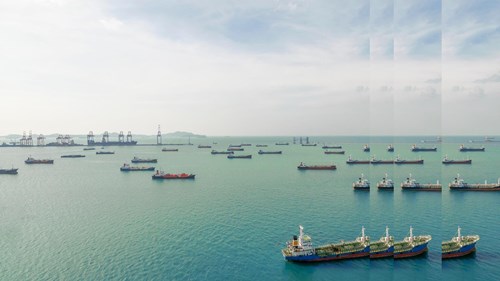The new EU Deforestation Regulation – What companies need to do to ensure supply chains do not involve deforestation
Regulation (EU) 2023/1115 on the on the making available on the Union market and the export from the Union of certain commodities and products associated with deforestation and forest degradation (EU Deforestation Regulation) was published in the Official Journal of the EU on 9 June 2023. The Regulation will come into force on 30 December 2024. Given the short transition period of just under 18 months, manufacturers and traders urgently need to clean up the supply chains with regard to deforestation and to ensure the necessary documentation.
I. What does the Regulation govern?
In the last 30 years alone, an area larger than that of the European Union has been deforested worldwide. The EU is responsible for around 10% of this deforestation due to its consumption. The new EU Deforestation Regulation (Regulation on deforestation-free products – “EUDR”) is intended to reduce the European contribution to global deforestation and also promote human rights and the rights of indigenous communities. Therefore in future certain products can only be legally distributed in Europe or exported from the EU if they have been produced without involving deforestation and if the laws of the country of production have been complied with.
II. What products are affected and what needs to be done?
The EU Deforestation Regulation covers the relevant commodities of cattle, cocoa, coffee, oil palm, rubber, soya and wood, as well as all products listed in Annex I of the Regulation, if they contain or have been produced using or fed with those relevant commodities. The list in Annex I refers to the proven system of the Combined Nomenclature, a basis for the classification of goods and tariff determination under customs law.
The products concerned must be deforestation-free from 30 December 2024. This means that there has been no conversion of forests to agricultural land in the production areas of the relevant commodities and that there have been no unsustainable harvesting operations resulting in a reduction or loss of biological or economic productivity and complexity of forest ecosystems.
In addition, the relevant laws of the country of production must have been complied with. This does not only include laws on forest and nature conservation, but also in particular labour rights, human rights, indigenous peoples’ rights and local anti-corruption laws.
III. Which companies is the EU Deforestation Regulation aimed at?
All companies that place products on the market within the EU (manufacturers and importers), make them available (traders) or export them from the EU are affected. They are all considered “operators” with a full set of obligations. The Regulation sets out (a few) facilitations only for small and medium-sized companies within the meaning of Directive 2013/34/EU.
Contrary to the EU Parliament’s original intentions in September 2022, financial institutions are not affected after all. However, two years after the start of application of the Regulation, a future extension of the scope of application to financial institutions will be considered. Therefore financial institutions and the insurance industry in particular should keep an eye on the issue.
IV. What obligations do companies have?
In order to ensure freedom from deforestation and compliance with local laws in the country of production, the EU Deforestation Regulation requires all operators in the supply chain to comprehensively document relevant information demonstrating compliance with the provisions (e.g. geolocation data of producers), to conduct a risk assessment for each product concerned, and to submit a due diligence statement electronically to the competent authorities.
This is a considerable set of obligations given that it applies not only to European companies first placing the products on the market, but also to traders. Operators must proactively establish and document that there is no risk of a breach of the EU Deforestation Regulation or at most a negligible risk. To do this, they must collect and keep information available on the product, the country of production, the specific production areas and the supply chain. The workload required for this will be significantly influenced by the European Commission’s country benchmarking system. The European Commission will classify countries into certain risk categories by 30 December 2024. Depending on the risk level, stricter requirements will apply to the risk assessment to be carried out by the operators for each product.
V. What are the consequences of breaches?
In the event of breaches of the provisions of the EU Deforestation Regulation, companies may face hefty fines of up to 4% of their annual turnover. Furthermore, the competent market surveillance authorities can not only prohibit distribution, but also force companies to withdraw affected products from the market or to recall non-compliant products from end customers. The latter in particular entails not inconsiderable liability risks for suppliers, for example if products have to subsequently be removed from other downstream products due to a lack of conformity with the requirements of the EU Deforestation Regulation.
VI. How should affected companies prepare?
All companies, whether manufacturers, importers or traders of products made from relevant commodities, must adapt their compliance structures in order to be able to meet the requirements of the EU Deforestation Regulation from 30 December 2024. Those who cannot prove at the beginning of 2025 that affected products pose no risk or only a negligible risk of non-compliance with the Regulation may face large fines, official withdrawal and recall orders and reputational damage from the publication of those breaches.
Manufacturers, importers and traders should therefore quickly get to grips with the new requirements, and check the extent to which their products are affected. They should then review their supply chains, set up processes to ensure compliance with the Regulation for newly handled products and consider how they can ensure existing products (including stored goods) comply with the requirements of the Regulation as efficiently as possible.
Well
informed
Subscribe to our newsletter now to stay up to date on the latest developments.
Subscribe now









